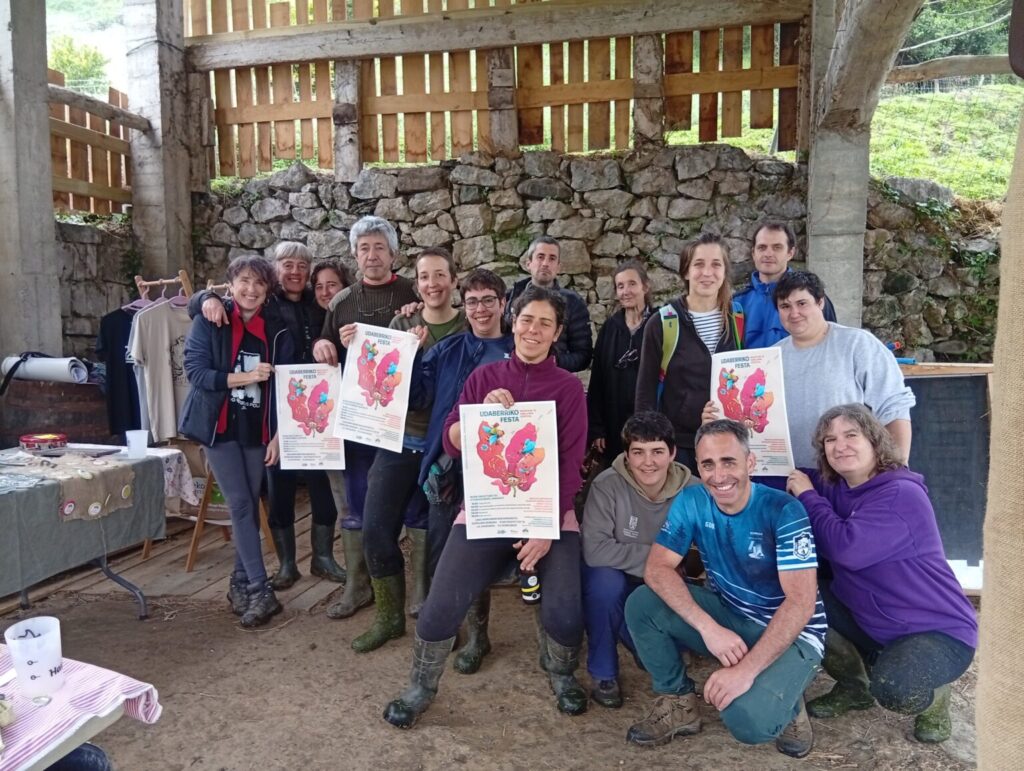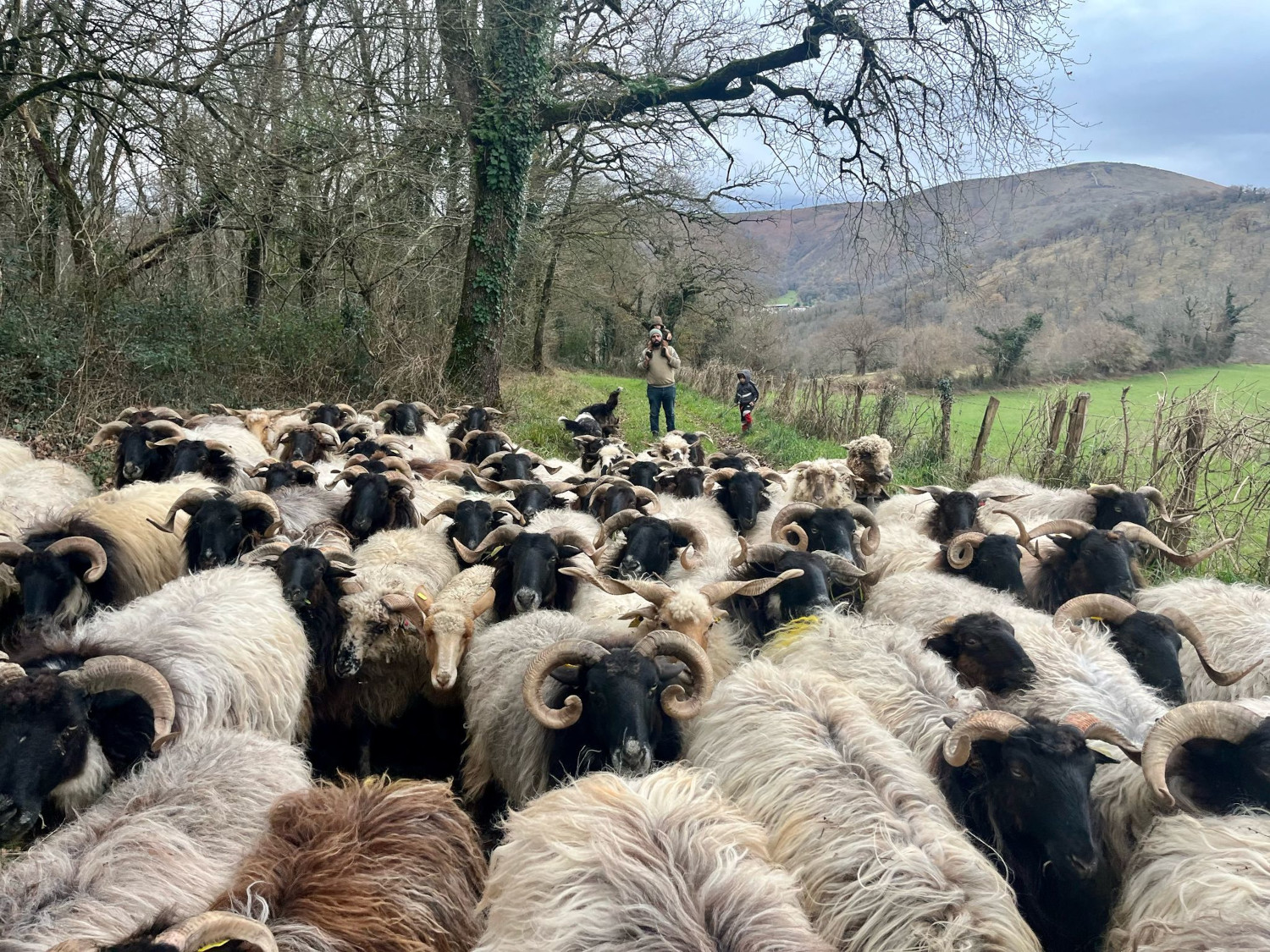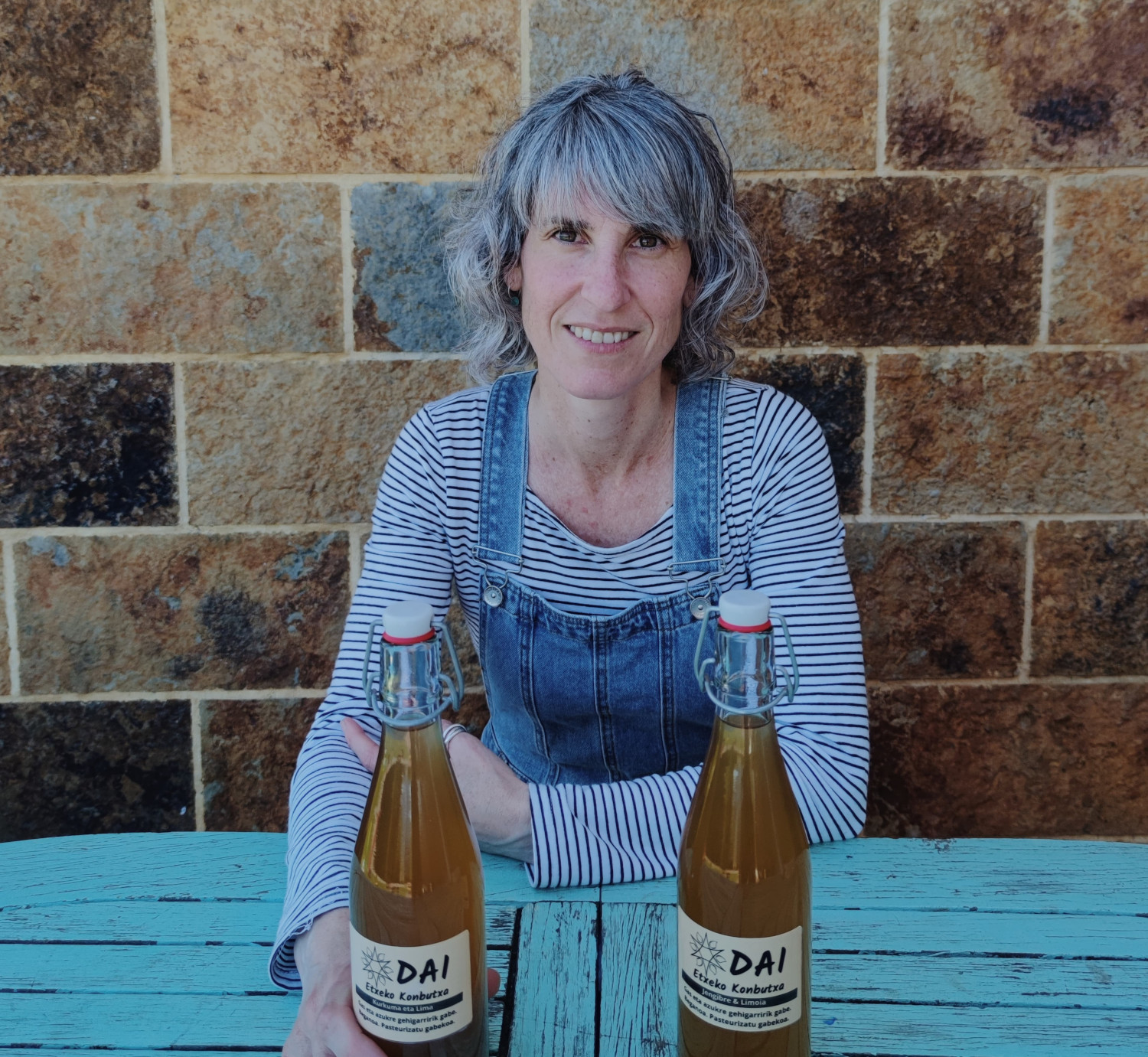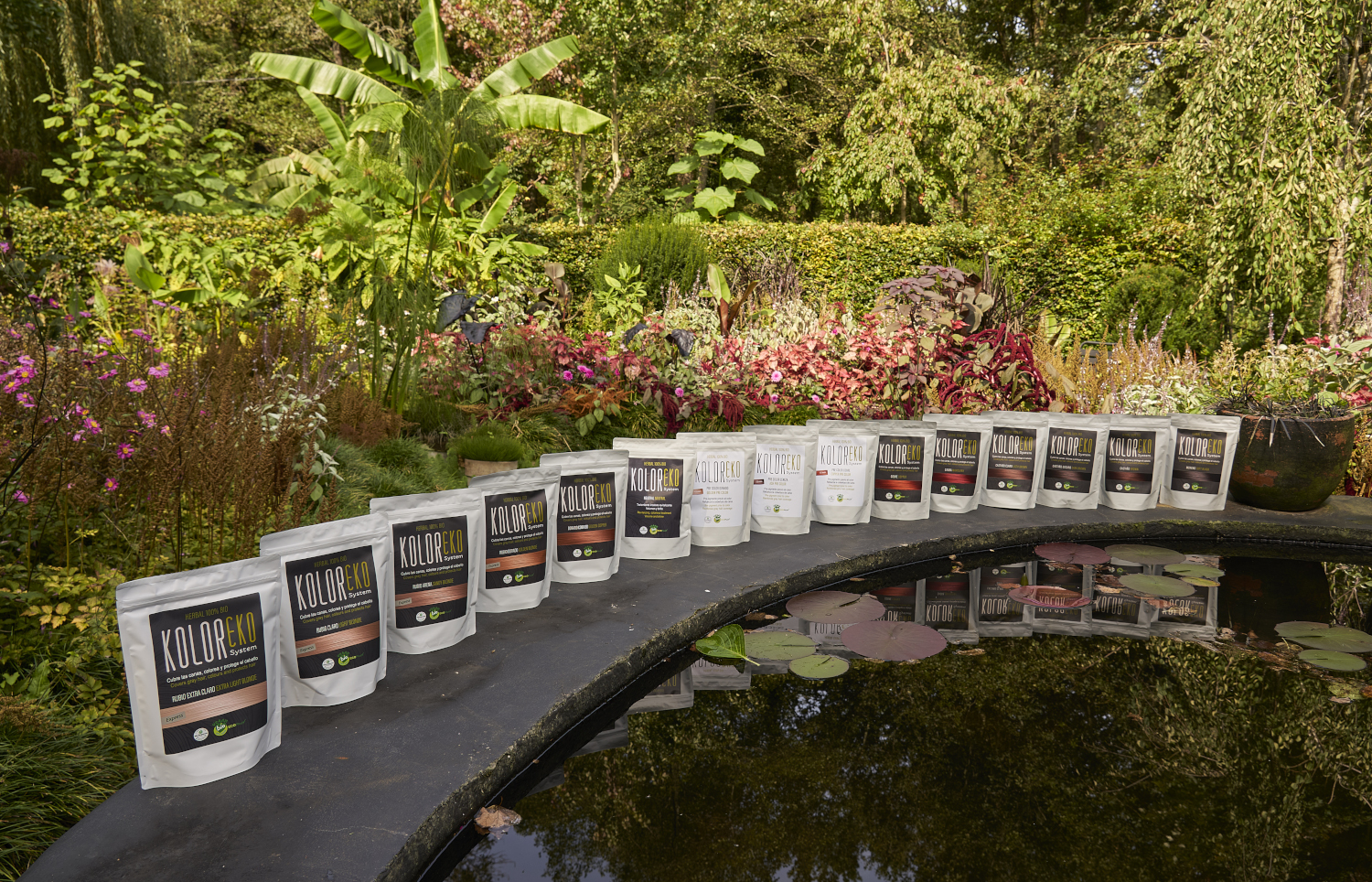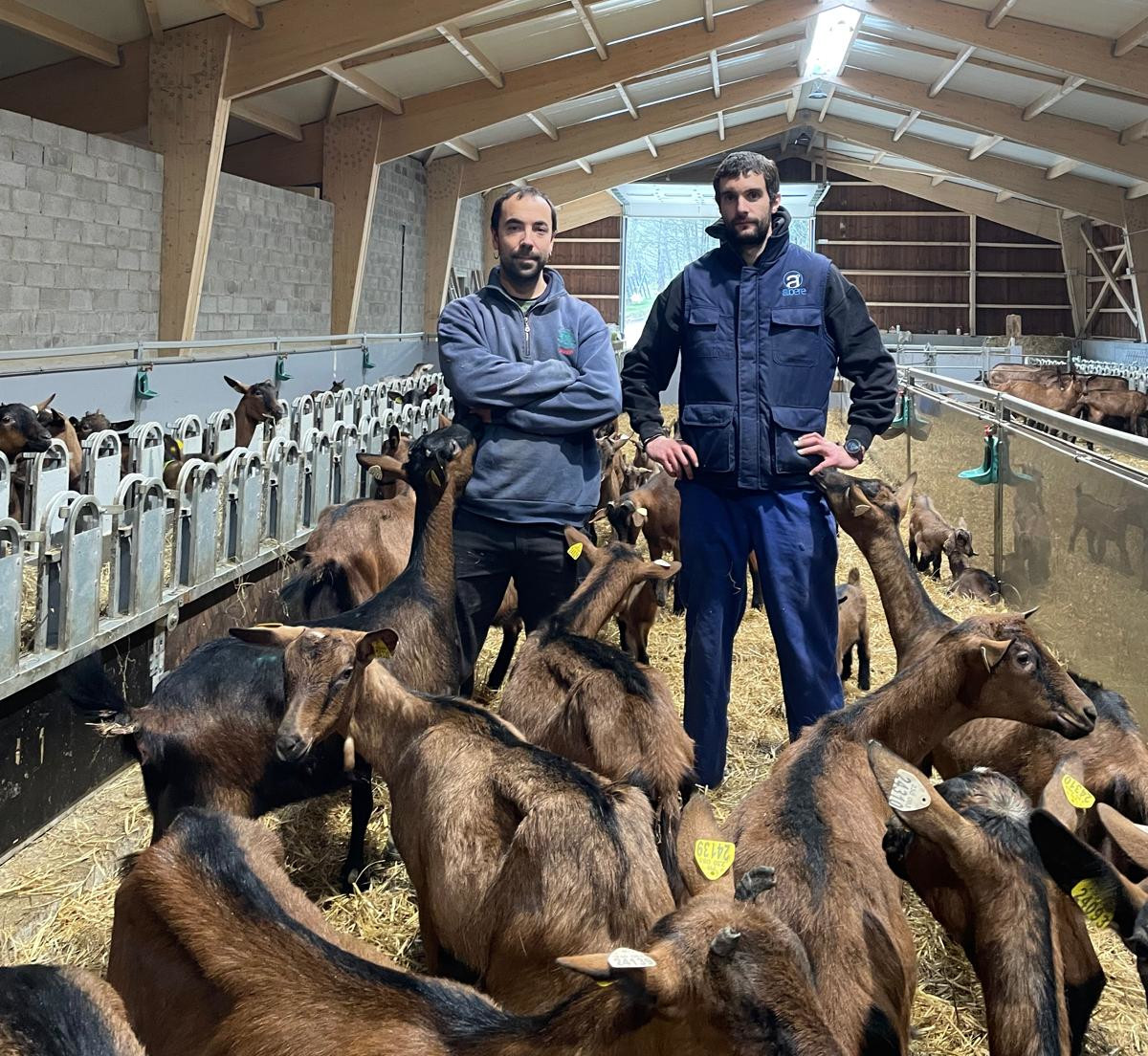Producers of organic milk in cooperation
- The Behi project is completed by Gregorio Zuaznabar of Anoeta and Fermin Murua of Altzo. The two farmers already working in the farmland and in Gipuzkoa were the first producers of cow's milk in the ecological model, each separately. In 2009, however, they decided to come together and join forces. “We saw the need to produce dairy products, and we thought that, instead of doing it one by one, it would be easier,” says Murua. The Sabekoetxea Processing Centre is set up and since 2010 they have developed pasteurized milk and yogurt in a small and ecological model.

Murua has about twenty cows and 22 hectares of grassland, while Zuaznabar has about eight cows and so many hectares. “The maximum number of cows per hectare of grass for organic production is two,” explains the farmer in Altzo. Another factor that differentiates from conventional production is the lack of pesticides and herbicides in the prairies and the number of antibiotics and medicines administered to the animals: “We use much less antibiotics in the ecological model, as their use is closely related to management: in small productions we force much less the cows, which makes the whole system easier.” I mean, the more the cow exploits, the more health problems they have.
As for the grazing system, the members of the Vaca have no place between February and December, and in winter, with bad weather, they only enter the block a couple of months. This directly influences the feeding of animals: fresh grass is the basis of their feeding and feed is only used as a sustenance. In the breeds of cows, they have the ones that best adapt to the local climate and orography and are more resistant to the diseases and parasites of the environment: “We have mostly Alpine cows and mestizages, field breeds; Frisians are getting less and less.”
Processing and sale on them
In the hamlet of Altzo, which was built in the stable itself, there are three workers dedicated to the pasteurization of milk and the elaboration of yogurts. Zuaznabar wears milk three times a week. “Here we transform almost all the milk we produce, we sell almost nothing abroad. Sometimes it is carried by the other member who makes cow cheese in Olaberria, that’s right,” he says. From the prairie to the boat, the control of the whole process is in your hands.
The live sale is the preferred option for the members of the Behia project: in shops, restaurants, coffee shops, consumer groups… they continue to sell at home, and combine this old form of selling milk with other more recent ones, which for years have in Tolosa a dispensary in which they sell milk, yoghurt and cheeses.
Duela lau urte abiatu zuten Azpeitian Enkarguk proiektua, Udalaren, Urkome Landa Garapen Elkartearen eta Azpeitiako eta Gipuzkoako merkatari txikien elkarteen artean. “Orain proiektua bigarren fasera eraman dugu, eta Azkoitian sortu dugu antzeko egitasmoa, bere izenarekin:... [+]
Donostiako Amara auzoko Izko ileapaindegi ekologikoak 40 urte bete berri ditu. Familia-enpresa txikia da, eta hasieratik izan zuten sortzaileek ile-apainketan erabiltzen ziren produktuekiko kezka. “Erabiltzaileen azalarentzat oso bortzitzak dira produktu gehienak, baina... [+]
Ubidekoak (Bizkaia) dira Imanol Iturriotz eta Aritz Bengoa gazteak. “Lagunak gara txikitatik, eta beti izan dugu buruan abeltzaintza proiektu bat martxan jartzeko ideia”, azaldu du Iturriotzek. Nekazaritzari lotutako ikasketak izan ez arren, baserri munduarekin eta... [+]
Iruñean bizi ziren Iñaki Zoko Lamarka eta Andoni Arizkuren Eseberri gazteak, baina familiaren herriarekin, Otsagabiarekin, lotura estua zuten biek betidanik. “Lehen, asteburuetan eta udan etortzen ginen eta duela urte batzuk bizitzera etorri ginen”, dio... [+]
Gipuzkoako hamaika txokotatik gerturatutako hamarka lagun elkartu ziren otsailaren 23an Amillubiko lehen auzo(p)lanera. Biolur elkarteak bultzatutako proiektu kolektiboa da Amillubi, agroekologian sakontzeko eta Gipuzkoako etorkizuneko elikadura erronkei heltzeko asmoz Zestoako... [+]
Emakume bakoitzaren errelatotik abiatuta, lurrari eta elikadurari buruzko jakituria kolektibizatu eta sukaldeko iruditegia irauli nahi ditu Ziminttere proiektuak, mahai baten bueltan, sukaldean bertan eta elikagaiak eskutan darabiltzaten bitartean.








